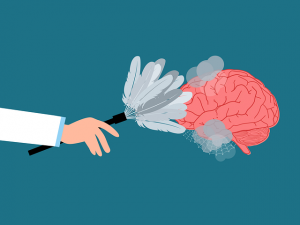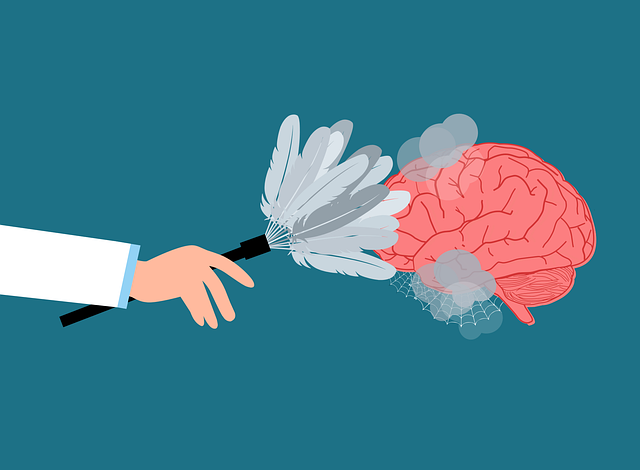How to balance emotions and use critical thinking for daily life
Emotions are a part of our everyday lives. They help us navigate the world, determine whether something is worth investing our time in, and help us navigate social interactions. But emotions can also have a negative impact on our lives. For example, being caught in a rainstorm can cause one to become irritated and upset; however, being in a warm, sunny place can cause one to become happy and excited.
Emotions play a big role in how we think and our ability to think critically. When we are emotional, we tend to think in a biased way. This means that our opinions and beliefs are stronger when we are feeling a particular way. This can impact our ability to be objective and think clearly.

Emotions are powerful forces that influence our thoughts and behavior. Emotional experiences can have a direct impact on our ability to think clearly and objectively. At times, emotions can be a beneficial influence on our ability to think critically. For example, when we are excited about going on a trip, our ability to think clearly and think critically can be enhanced.
Emotions and critical thinking
Emotions are a big part of our everyday life. They are important because they help us to make decisions, solve problems and think about things in different ways.
Emotions can be positive or negative. Positive emotions include excitement and joy, while negative emotions include anger and fear.
Positive emotions help us to take action and make the right decisions in our lives. For example, we feel excited when we buy a new phone or computer. We also feel happy when we learn something new or accomplish a difficult task.

Negative emotions hinder our ability to make good decisions because they cause us to overreact to situations that are not important in the long run. For example, if you get angry at someone who has done nothing wrong, then it will only harm your relationship with that person.
However, when we are feeling irritated, our ability to think clearly and think critically is impaired. This impact of our emotions on our ability to think clearly and think critically is known as emotional bias. It is the tendency for our opinions and beliefs to be stronger when we are feeling a particular way. A person who is constantly critical of others may lack the ability to be open to new ideas.
Critical thinking and bias
Bias is the tendency for our beliefs and opinions. When we are feeling a particular way we prefer one opinion over another based on our emotions. This can lead to wrong judgments.
However, critical thinking is the process of evaluating beliefs and opinions based on evidence and logic. It is the process of evaluating beliefs and opinions based on evidence and logic.
Why emotions matter in critical thinking
Emotion is powerful, and it plays a huge role in our lives. It can be very beneficial or it can be detrimental. Emotions can help us cope with difficult situations and make better decisions. But they also have the potential to negatively affect your ability to think critically and logically about the world around you.
Emotions are not rational or logical processes. They are usually based on feelings, which are often based on past experiences and expectations about the future. As such, the way you feel about an issue will likely determine how well you think about it — especially when it comes to critical thinking skills like problem-solving or decision making.

Emotions can influence our thinking in both positive and negative ways.
Positively, emotions such as joy, pride, and happiness can encourage us to think about something in a new way. In evaluating new information, we may be more willing to listen to people who express positive emotions than people who express negative emotions.
Negatively, when we are angry or sad, we may not be able to think clearly because our emotions have taken over.
Positively, when you get excited about something you’re doing, it’s easy for your brain to focus on the task at hand. You’ll probably feel less stressed if you focus on the task rather than worrying about what might go wrong later on.
Negatively, when you feel stressed or anxious about a big project coming up or a big deadline looming ahead of you, it’s harder for your brain to focus on your work or schoolwork because all of these things are going through your head at once. This can make it harder for you to complete whatever it is that needs doing.
Emotions are powerful
Emotions are the driving force behind much of a person’s life. Emotions can be positive or negative, and they influence both thinking and behavior.
Positive emotions are those that give you a sense of well-being and contentment. They make you feel good about yourself and in control of your life.
Negative emotions can cause us to react negatively to situations in our lives. For example, someone who feels anger towards his boss may think that he is being mistreated by his manager when he is just having an off day at work.
Emotions are signals that are sent to the brain to give us information. We can use this information to make good decisions or bad ones. When we are emotionally charged, it’s easy to make poor decisions because our brains aren’t able to process all the information quickly enough.
Critical thinking for daily life
Critical thinking is important in daily life. It helps us to be more effective and efficient in our work, to solve problems, and to make decisions.
Critical thinking is a skill that helps you determine the validity of an argument or claim. It involves analyzing different perspectives, weighing evidence and arguments, and making decisions based on those analyses.
Critical thinking helps you be successful at school and in life. For example, critical thinkers are able to apply knowledge to new situations as they arise. They can also solve problems by applying their knowledge in novel ways. Critical thinking skills can help you prepare for future careers by providing a framework for analyzing issues and coming up with solutions that are rooted in reality rather than wishful thinking.
Critical thinking is a skill that we can all use in making better decisions about how we live our lives. It doesn’t matter if you’re at the grocery store or at the bank; your critical thinking skills will come in handy every day.
Critical thinking for education
Critical thinking is one of the most important skills for higher education. It’s also a skill that can be learned, and it’s something you should develop in your daily life as well. Let’s see how to achieve this.
1. Keep a journal:
Regularly write down your thoughts and ideas as you go about your day. When you have a problem with a project or a paper, write down what you did and why it didn’t work out. This will help you see patterns in your thinking and improve it over time.
2. Learn from your mistakes:
Make sure to keep a record of what went wrong when you tried something new or encountered an obstacle. You might try again another time if you can learn from those mistakes so that others won’t make the same mistake twice!
3. Analyze the world around you:
Learn how things work firsthand by examining them closely and identifying their parts, functions, and relationships within themselves.
4. Ask questions and possible alternatives:
Critical thinking is all about finding the best solution available. So always keep in mind to look for alternatives and other opinions. Look at the question from different angles and ask several questions yourself.
Q&A on critical thinking
What is critical thinking?
Critical thinking is a mental process that involves carefully analyzing and judging information, arguments, or ideas in a systematic and objective way. It means having an open mind and being willing to examine issues from different points of view. It also means being aware of your own biases and assumptions and using logic to come to well-supported conclusions.
How does emotion affect critical thinking?
Emotions can both help and hinder critical thinking. On the one hand, emotions can help us to think more deeply about a problem or issue and to be more motivated to solve it. On the other hand, strong emotions can sometimes cloud our judgment and lead us to make decisions based on irrational or biased thinking. It’s important to be aware of how our emotions may be influencing our thinking, and to try to maintain a balance between emotional and rational considerations.
How can we improve our critical thinking skills?
There are several ways to improve critical thinking skills:
- Practice evaluating the quality of the evidence supporting an argument or idea
- Seek out diverse perspectives and consider multiple viewpoints
- Reflect on your own biases and assumptions
- Ask questions and challenge assumptions
- Learn to recognize and avoid logical fallacies
- Practice evaluating the credibility of sources
- Learn to think critically about media and advertising
How can we manage our emotions in order to think critically?
Here are a few tips for managing emotions in order to think critically:
- Take a step back and take some time to think before making a decision
- Practice mindfulness techniques to help you stay present in the moment and avoid getting carried away by your emotions
- Try to keep an open mind and consider multiple perspectives
- Seek out information from a variety of sources to help you make more informed decisions
- Avoid making decisions based on fear or anger
- Practice self-care and manage stress in order to keep your emotions in check.
How can we apply critical thinking to solve problems?
Critical thinking can be very useful in problem-solving because it helps us to carefully analyze a situation and consider multiple options before making a decision. Here are a few steps you can take to apply critical thinking to solve problems:
- Define the problem clearly and accurately
- Gather and evaluate relevant information
- Generate and consider multiple potential solutions
- Make a decision based on logical reasoning and the available evidence
- Implement and test the chosen solution
How can we balance emotional and rational considerations when making decisions?
When making decisions, it’s important to consider both emotional and rational factors. Here are a few ways to balance these considerations:
- Take some time to think through the decision and weigh the pros and cons of each option
- Consider how the decision will affect not only yourself, but also others who may be affected by it
- Seek out the perspectives of others who may have different viewpoints or experiences
- Try to maintain a sense of perspective and avoid letting your emotions get the best of you
- Practice mindfulness techniques to help you stay grounded and make decisions based on rational thinking rather than impulsive emotions.
How can we recognize and avoid logical fallacies?
Logical fallacies are errors in reasoning that can undermine the validity of an argument or idea. Here are a few tips for recognizing and avoiding logical fallacies:
- Pay attention to the structure of an argument and look for flaws in the logic
- Be aware of common logical fallacies, such as the straw man fallacy, ad hominem fallacy, and appeal to authority fallacy
- Check to make sure that the argument is supported by reliable and relevant evidence
- Be open to considering alternative viewpoints and be willing to revise your own beliefs if the evidence warrants it.
Conclusion
Critical thinking is a way of thinking that involves questioning, analyzing, and evaluating information. Critical thinking skills enable people to develop an understanding of the nature of knowledge, how it can be acquired and used, how it relates to personal experience and the social world, and how it is connected with other kinds of knowledge. They also help people to evaluate their own beliefs, values, opinions, and actions critically.
We all need to think critically in order to make good decisions. This is important in our daily lives, from deciding what to eat for dinner to whether or not to take out a mortgage on a new house. We may call this process “thinking,” but it’s more than that. It’s an active process of examining our own ideas and beliefs, testing them against reality, and evolving them when necessary.






